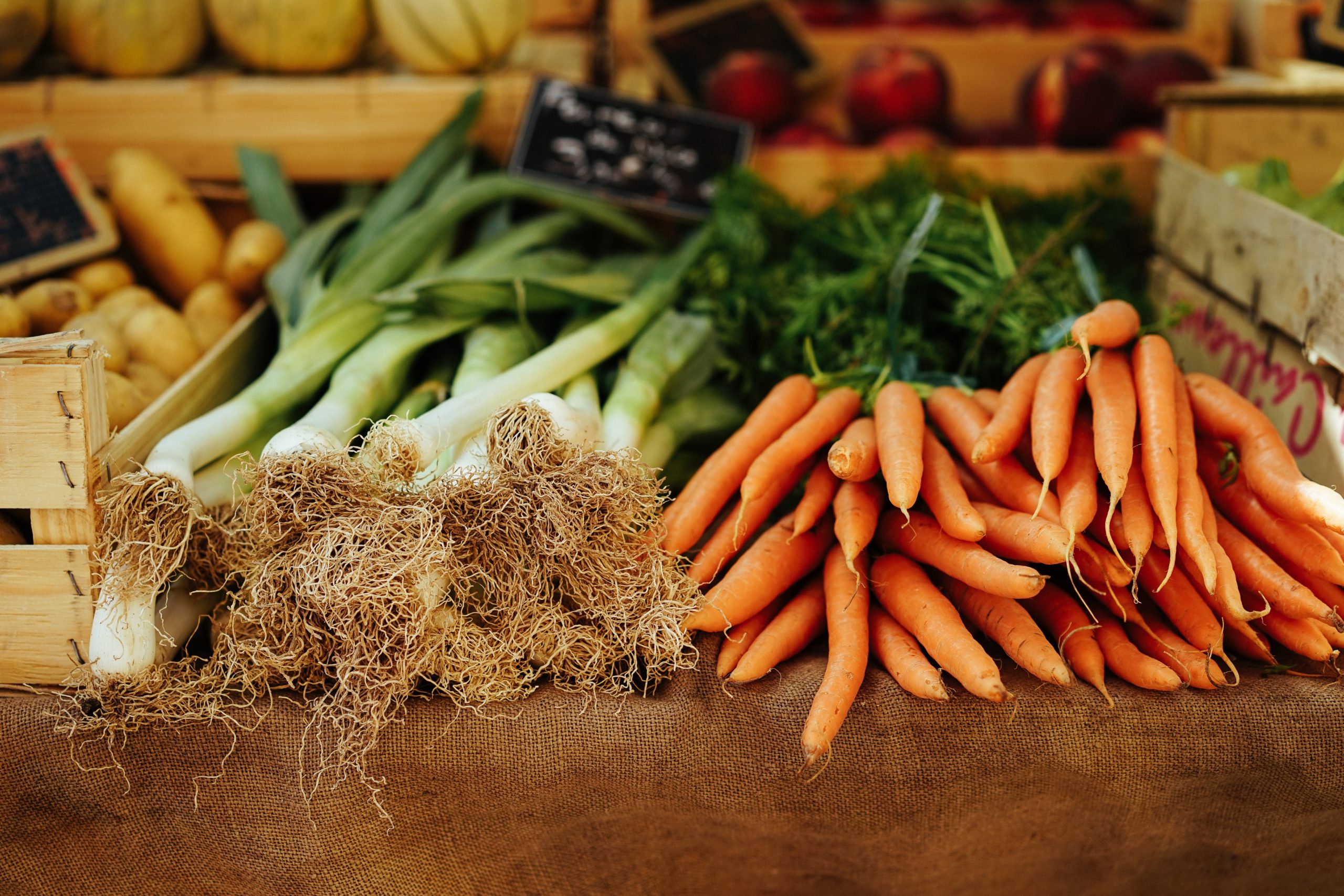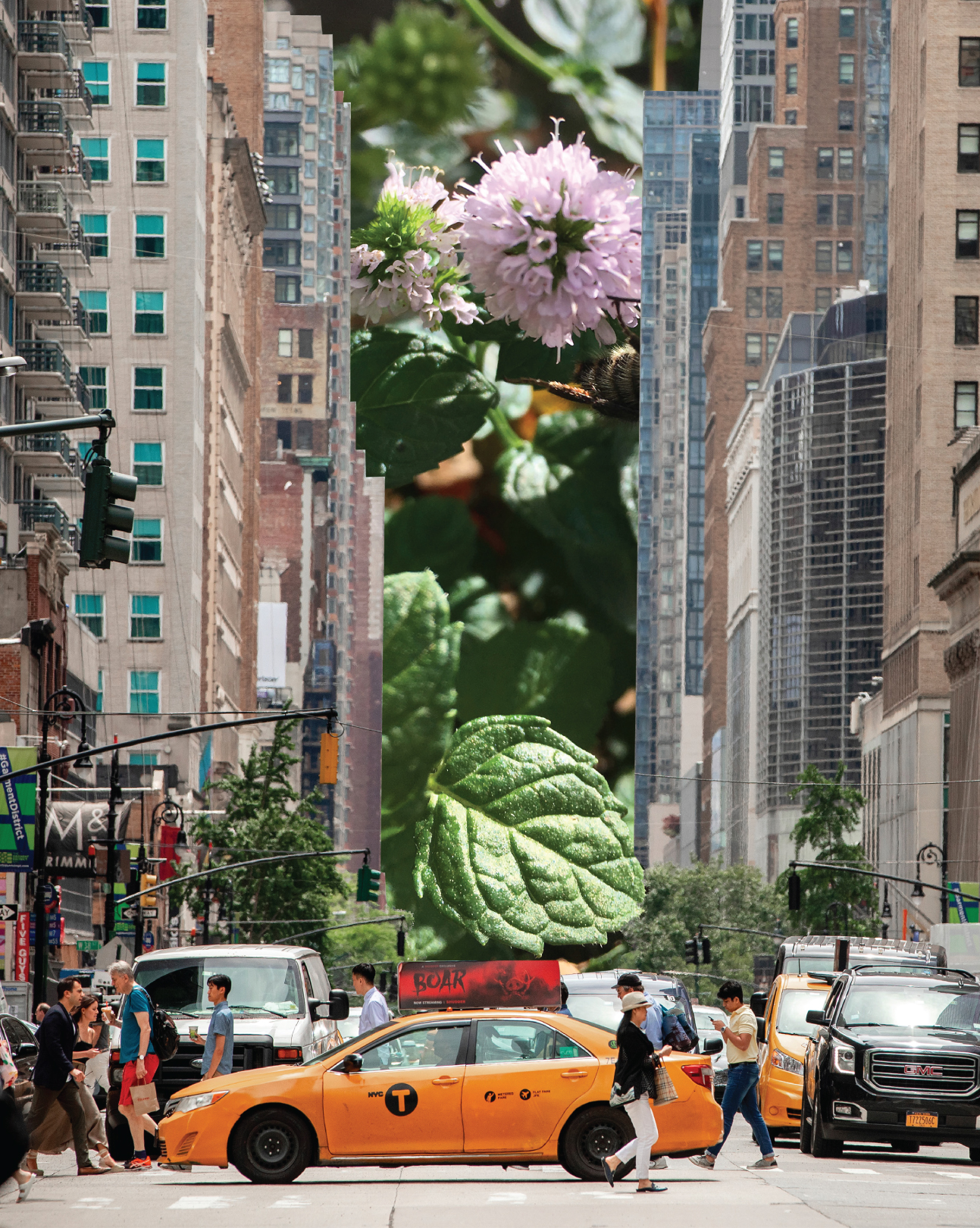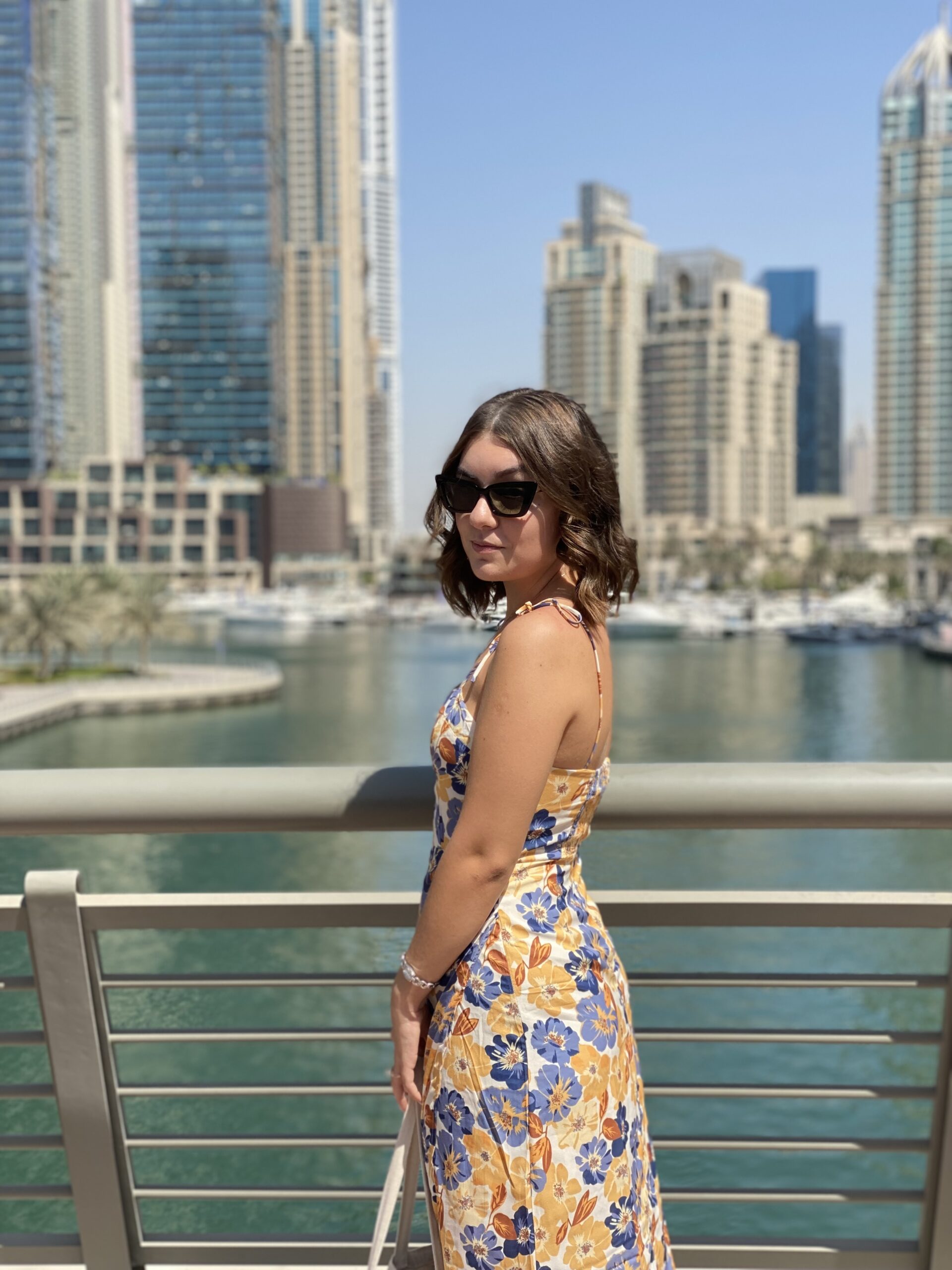Published June 07, 2024
Plastic Fantastic: Students in This NYU Abu Dhabi Course Are Rethinking the Future of Plastic
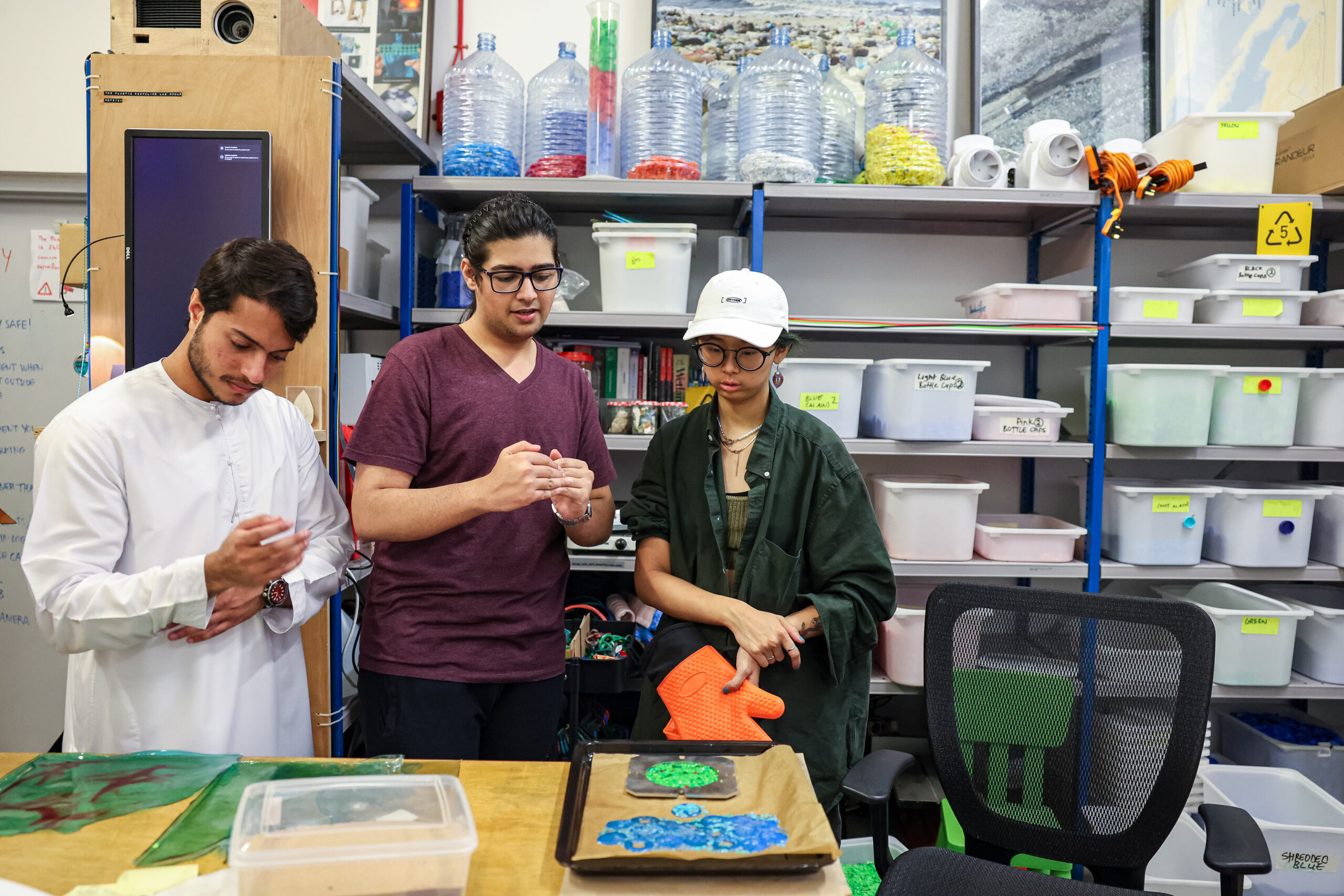
What would our lives be like without plastic? How does the world operate because of it? What does “plastic” mean? In the Plastic Fantastic course at NYU Abu Dhabi, students explore plastic’s role in society alongside its predecessors and modern alternatives. Drawing from fields like law and policy, design, business, and environmental studies, the class holistically examines the value and impact of this widely used material and quality. Through readings, classroom debates, and even the creation of short films, students across disciplines explore topics like the politics of ocean plastic pollution, the ethics of plastic surgery, and the proliferation of inexpensive plastic toys.
Fuad Thabit, NYU Abu Dhabi Computer Science major and Economics minor, found the course’s interdisciplinary approach enlightening. “It pushed me to see the interconnectedness of technology, art, and environmental science,” he shares. “The opportunity to meld my technical skills with storytelling and design was particularly rewarding. The projects challenged me to think outside the box. Additionally, they taught me valuable media skills and artistic approaches that were new to me as a computer science student.”
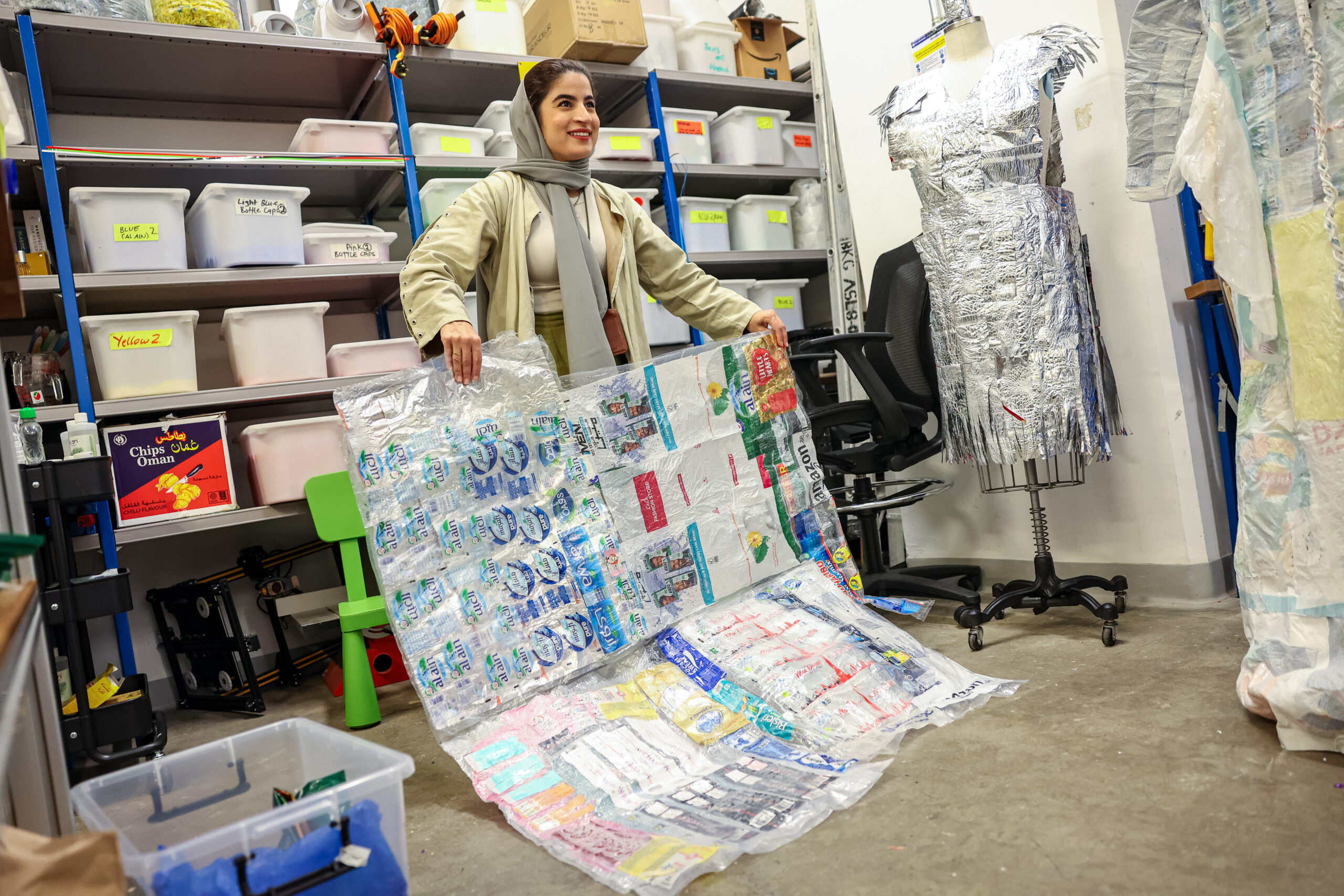
Envisioning a More Sustainable Future
Plastic Fantastic does not only focus on the problems of plastic. Rather, it also shines a light on the potential for more sustainable plastic usage and management. “Plastic is an amazing invention that has made progress possible in many fields, including health care,” says NYU Abu Dhabi lecturer of engineering design Khulood Alawadi, who teaches the Plastic Fantastic course. “We’re not going to stop using plastic. So we need to look instead at the pain points and what we can do better. The answers to how we can manage plastic waste are largely available.”
Inside NYU Abu Dhabi’s Plastic Recycling Research Lab, students discover what it takes to collect and modify recycled plastic. What’s more, they learn how to make bioplastic from renewable resources. Product designers and other professionals, including NYU graduates, visit the lab to discuss their work in sustainability. Students also tour recycling facilities and organizations that create new products out of plastic waste.
“The combination of classwork with expert guest lectures and visits to industrial sites provided real-world context for our studies,” Fuad reflects. “It highlighted the role of collaborative innovation in tackling environmental issues. Plus, it broadened my perspective on potential career paths and the importance of integrating diverse fields.”
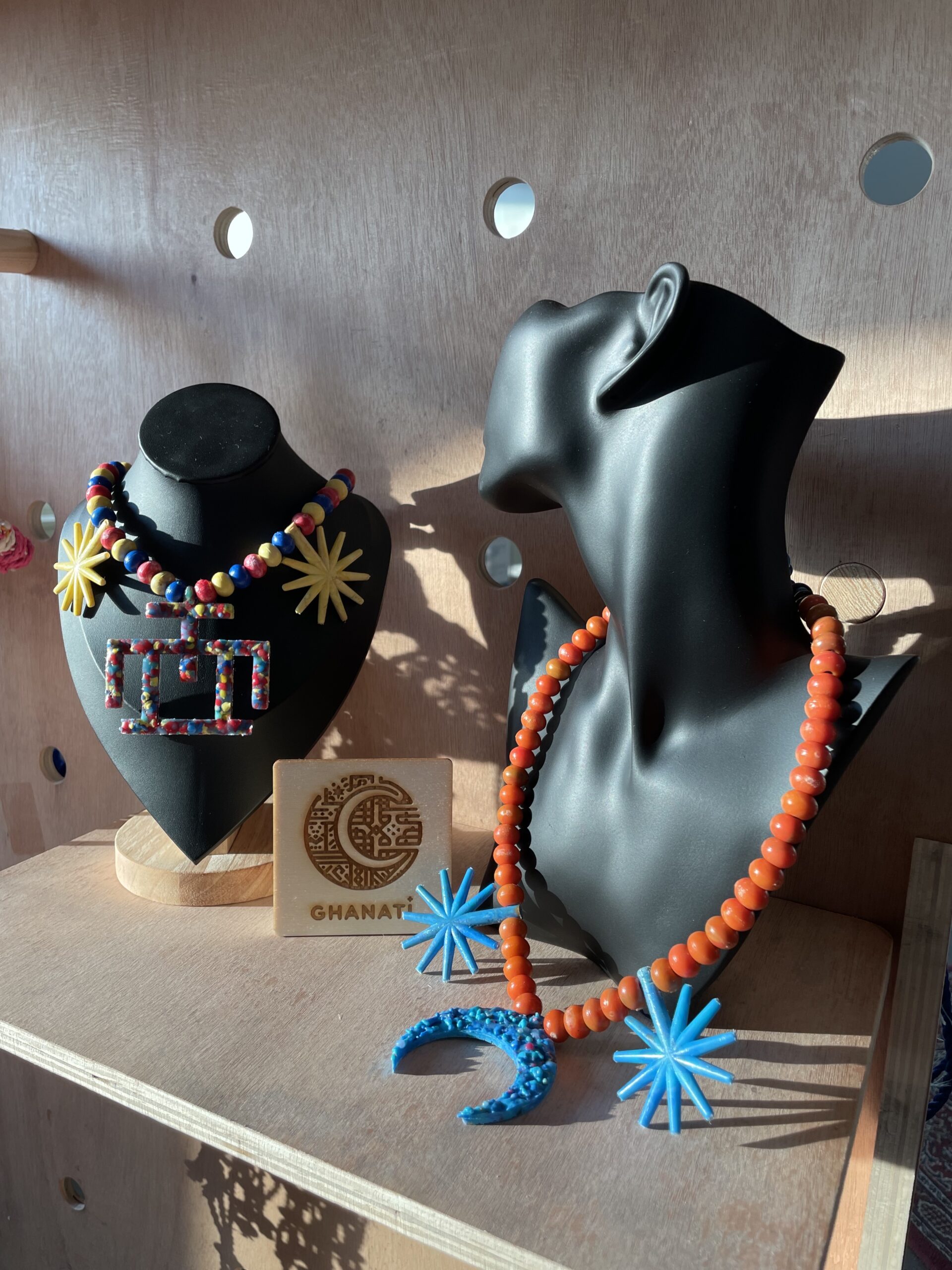
Creating a Second Life for Found Plastic
Inspired by plastic’s Greek derivative, plastikos, meaning “to grow” and “to form,” students work in teams to develop a functional and reproducible product made entirely of found plastics for their final project. Teams also create product pricing and branding plans that consider their product’s target market and business viability.
“The assignment is about more than the final product. It’s about how you think through problems in the manufacturing and design process,” says Professor Alawadi. “Students end up with a range of extremely useful and transferable skills as well as a tangible portfolio piece they can show others.”
For example, recent groups designed jewelry, hanging baskets, and a crossbody water bottle holder. Khalifa Ali Alblooshi, who is majoring in Business, Organizations and Society and double-minoring in Economics and Social Research and Public Policy, worked with his classmates to fashion a dress from discarded chip bags. “My biggest takeaway from Plastic Fantastic is that repurposing something can be immensely joyful,” Khalifa shares. “Everything deserves a second chance.”

